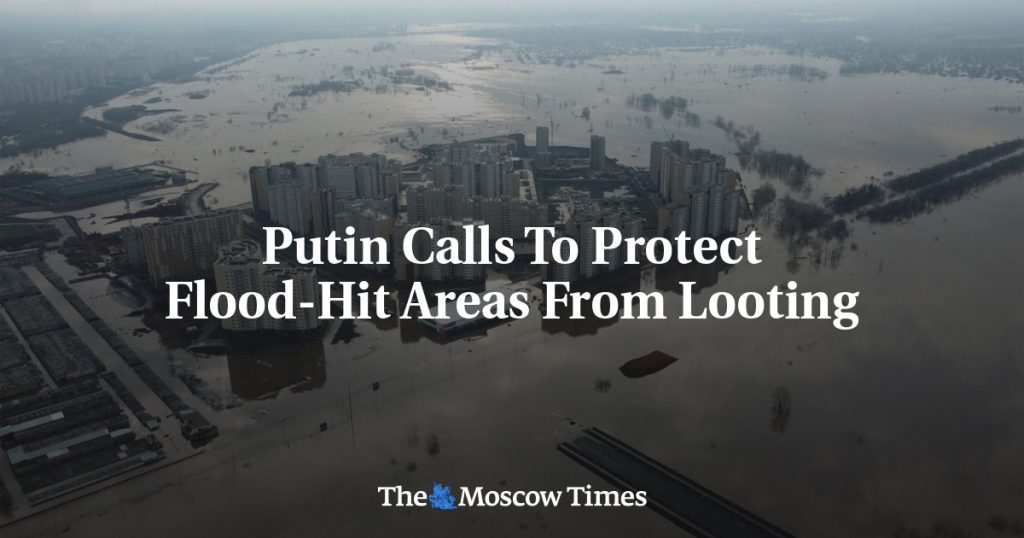Russian President Vladimir Putin is closely monitoring the devastating floods in Siberia and the Urals, urging local leaders to ensure the safety of flood-hit homes from looting. Authorities in the Kurgan region have evacuated 14,000 people as the Tobol River continues to rise. The floods, which have been ongoing for almost two weeks, have affected thousands of homes in Russia and neighboring Kazakhstan. Putin, who has not visited the flood zones like his Kazakh counterpart, held a government meeting to discuss the situation and emphasized the importance of restoring infrastructure and compensating the victims.
During the meeting, Putin reprimanded the governor of the Tyumen region for calling people who resisted evacuation orders “stubborn.” He emphasized that these individuals are worried about their property and homes and should not be criticized for their reluctance to leave. Concerns about looting have been raised by residents in the flood-hit city of Orenburg. In the Kurgan region, where floods have peaked, 14,300 people have been evacuated from the rising Tobol River. Temporary accommodation centers have been set up in the region, where 25 villages have been flooded. Over 2,500 people have filed for compensation in the region.
Rare protests erupted earlier this month in the worst-hit city of Orsk over the handling of the floods and compensation issues. Russia’s emergency minister Alexander Kurenkov informed Putin that the water levels have reached the main city of the Kurgan region and are expected to rise to 10 meters in the coming days. Approximately 600 homes have been flooded in the Kurgan region, posing significant challenges for residents and authorities. Putin expressed concern over the situation and vowed to address the delicate restoration issues as the waters recede and emphasized the need for wider discussions with municipal leaders.
The floods in Siberia and the Urals have caused widespread damage and displacement, with many residents facing the loss of their homes and belongings. Putin’s oversight of the situation and his instructions to local leaders underscore the seriousness of the crisis and the government’s commitment to addressing the needs of the affected population. The coordination between different levels of government and response agencies is crucial in providing effective support to those impacted by the floods. The challenges of restoring infrastructure and providing compensation to victims will require close collaboration and resources from various stakeholders.
The flooding in Russia and neighboring Kazakhstan serves as a reminder of the vulnerability of communities to natural disasters and the importance of preparedness and response mechanisms. The evacuation efforts and establishment of temporary shelters highlight the urgency of the situation and the need to protect lives and property. Putin’s engagement with the issue and his directives to government officials indicate a proactive approach to managing the crisis and mitigating its impacts on the population. By addressing concerns such as looting and ensuring fair compensation for victims, the authorities are working to restore a sense of security and stability in the affected regions.
As the floodwaters continue to rise and affect more areas, the focus on infrastructure restoration and long-term recovery becomes paramount. Putin’s assurance to convene broader discussions with municipal leaders signals a commitment to comprehensive planning and rebuilding efforts in the aftermath of the floods. The challenges faced by residents in the flood-hit regions require sustained support and resources to help them recover and rebuild their lives. The government’s response to the crisis will be closely monitored, and the lessons learned from this experience will inform future disaster preparedness and response strategies in Russia and beyond. The resilience of the affected communities and the solidarity shown by authorities and volunteers in responding to the floods demonstrate the importance of collective action in times of crisis.


